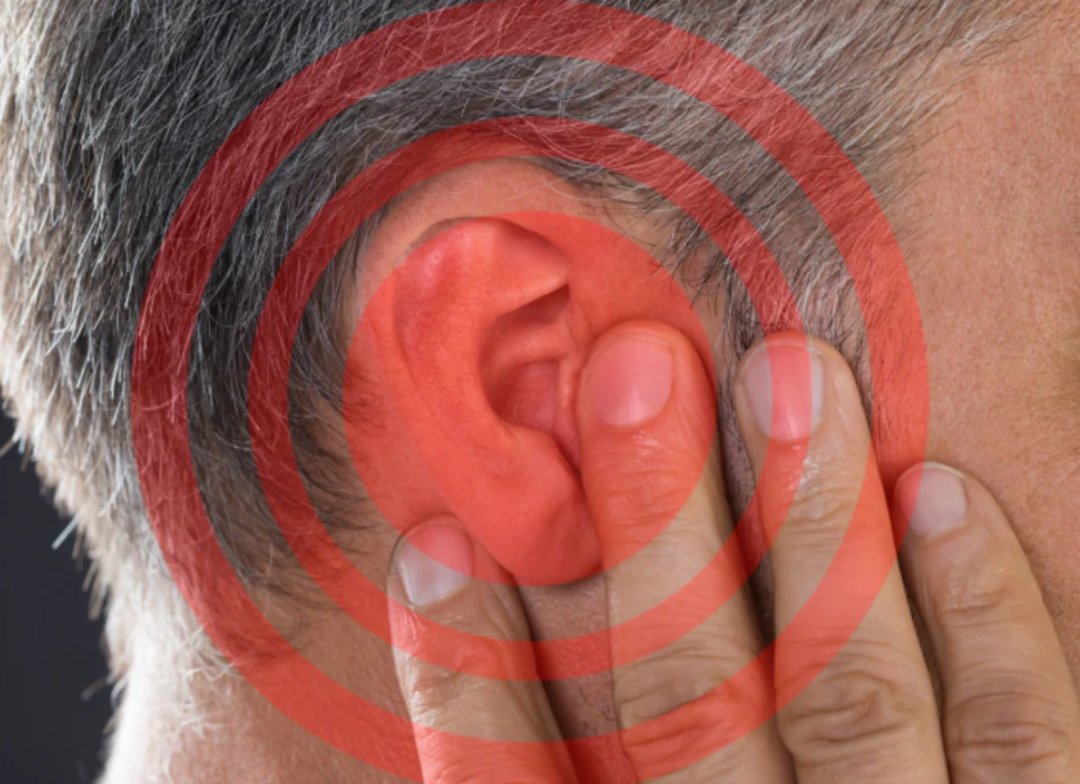There is nothing more puzzling and annoying than hearing a pulsing sound in your ear. It is commonly associated with complications in blood vessels or the ear structure. If you’ve ever wondered how to stop pulsing in the ear, you’re not alone. The bright side is that when the correct information and contemporary ear-care equipment are used, one may be able to enjoy a beneficial relief and avoid its recurrence.
What Is Ear Pulsing or Pulsatile Tinnitus?
Pulsatile tinnitus may also be termed as ear pulsing, and this is the kind of tinnitus where you hear things beating in your ear like your heart. Unlike the constant ringing of ordinary tinnitus, pulsatile tinnitus often synchronizes with the heartbeat and results from changes in blood flow within or around the ear. It may have either vascular or non-vascular origins and, in some cases, may indicate an underlying medical condition [1].
Although in most cases, it is harmless, constant pulsing cannot be disregarded. It can be a sign of such underlying diseases as high blood pressure, earwax, ear infections, and structural ear dysfunction. It may be much easier and more effective to cure the cause at the early stage.

Common Causes of Ear Pulsing
There are a number of root causes of ear pulsing, and knowledge of them helps you find the best way to relieve them. Among the most common ones, there are:
-
High Blood Pressure: The increased flow of blood through the ear will be caused by high blood pressure, and therefore, the pressure will create audible sounds.
-
Earwax Blockage: While earwax buildup can contribute to ordinary tinnitus, studies show there’s no clear evidence that wax alone causes pulsatile tinnitus [2]. However, earwax can still block sound and make internal noises more noticeable.
-
Middle or Inner Ear Infection: It causes swelling and a collection of fluid, and this can disrupt the usual hearing.
-
Blood Vessel Change: Pulsating noises can either be due to the constriction of arteries or arise as a result of poor blood circulation.
-
Stress and Anxiety: The disorders can cause you to be extra sensitive to internal sounds, like pulse-like sounds.
When you often hear the throbbing noise, then you have to take care of your ears instead of just disregarding it.
How to Stop Pulsing in the Ear?
Learning how to stop pulsing in the ear involves both self-care techniques and medical guidance. The appropriate solution depends on the cause of the problem. The following are some of the viable solutions:
Home Remedies
When the ear pulsing is mild and you are willing to go through some easy remedies before going to a doctor, some simple ways can go a long way. The Bebird EarSight Plus Flexible Otoscope Light can be used at home to monitor possible health problems within the ENT system. It helps you with a high-definition camera and adjustable light to peep into your ear canal with ease. Through this, you can easily notice any dirtiness of wax, redness, or infection before they worsen.
Monitoring your ear health at the comfort of your home with the help of routine check-ups with the help of Bebird EarSight Plus Flexible Otoscope Light, you are able to track the health of your ear and take early measures in case something does not feel right.
Along with the use of the otoscope, one can also:
-
Use a warm compress on the ear in question in order to enhance blood flow.
-
Be hydrated and balance out the sodium level, as dehydration and sodium increase ear pressure.
-
Breathe in and out deeply or use relaxation skills/ methods to minimize stress-related pulsing.
Medical Treatments and Interventions
In case your physician establishes a related condition, then you might need professional treatment. Depending on the cause, it can be an option of:
-
Medication: If high blood pressure or an ear infection is the cause, medications can help control the symptoms [3].
-
Cleaning of the ear by the professionals: In case of impaction with wax, your physician can suggest ear irrigation or ear suction.
-
Surgical therapy: On rare occasions, a few of these complications, like abnormalities of the vessels, are open to surgical operation.
It is important to remember that medical treatment should be based on a professional diagnosis as one of the methods of providing safety and efficiency.
How to Prevent Pulsing in the Ear?
Ears should be dry and clean to avoid the recurrence of ear pulsing. Good ear care may prevent earwax, minimize the chances of infection, and keep the ear healthy in terms of pressure.
At home, you may apply Bebird EarSight Complete Smart Ear Cleaner, which is a professional standard and a device that is safe and effective in removing earwax without discomfort. This intelligent ear cleaner will have an inbuilt camera and accuracy tips, which will enable you to view what you are cleaning in real time. It will be a hundred percent safe and accurate.

In order to travel, take the Bebird EarSight R1 Portable 3-in-1 Ear Cleaning Kit. It is very compact in size and can be readily packed, featuring three key functions: cleaning, inspection, and illumination, all in one ear care device, perfect for use anywhere. You are on vacation or commuting, this kit is useful in keeping your ears clean and avoiding the accumulation that may cause pulsing effects.
FAQ
Is ear pulsing a serious condition?
Usually, it’s not dangerous. However, if it lasts or is accompanied by dizziness, hearing loss, or headaches, consult a doctor to rule out the possibility of serious causes.
Is ear pulsing really induced by stress?
Yes, this stress can make you sensitive to internal body sounds and, conversely, you will become sensitive to pulse-like sounds.
Is it necessary that I clean my ears?
Yes, but do it safely. Apply soft cleaning supplies such as Bebird as opposed to cotton swabs, to avoid damage.
Does ear pulsing self-resolve?
In many cases, yes. Mostly, even in cases where the cause is temporary, like light wax build-up or stress, it can be cured without medication.
Conclusion
Having a throbbing sound in your ear is annoying, and you can find relief in a few seconds, provided you are aware of what caused it and implement realistic measures. If you’ve been wondering how to stop pulsing in the ear, the key is to combine self-care with medical advice when needed. Good ear hygiene, quality ear cleaning tools such as the Bebird EarSight Plus Flexible Otoscope Light and the Bebird EarSight Complete Smart Ear Cleaner are all you need to ensure that you are in control of your ear health.
References
[1] StatPearls. Pulsatile Tinnitus. In: StatPearls [Internet]. Treasure Island (FL): StatPearls Publishing; 2024.
[2] Vevers S, Quamina S D. What to know about pulsatile tinnitus and ear wax. Medical News Today. 2023 Sep 1. Available from:
[3] MDPI. Pulsatile Tinnitus: A Comprehensive Clinical Approach to Diagnosis. Journal of Clinical Medicine. 2023;14(13):4428. Available from:
















Leave a comment
All comments are moderated before being published.
This site is protected by hCaptcha and the hCaptcha Privacy Policy and Terms of Service apply.